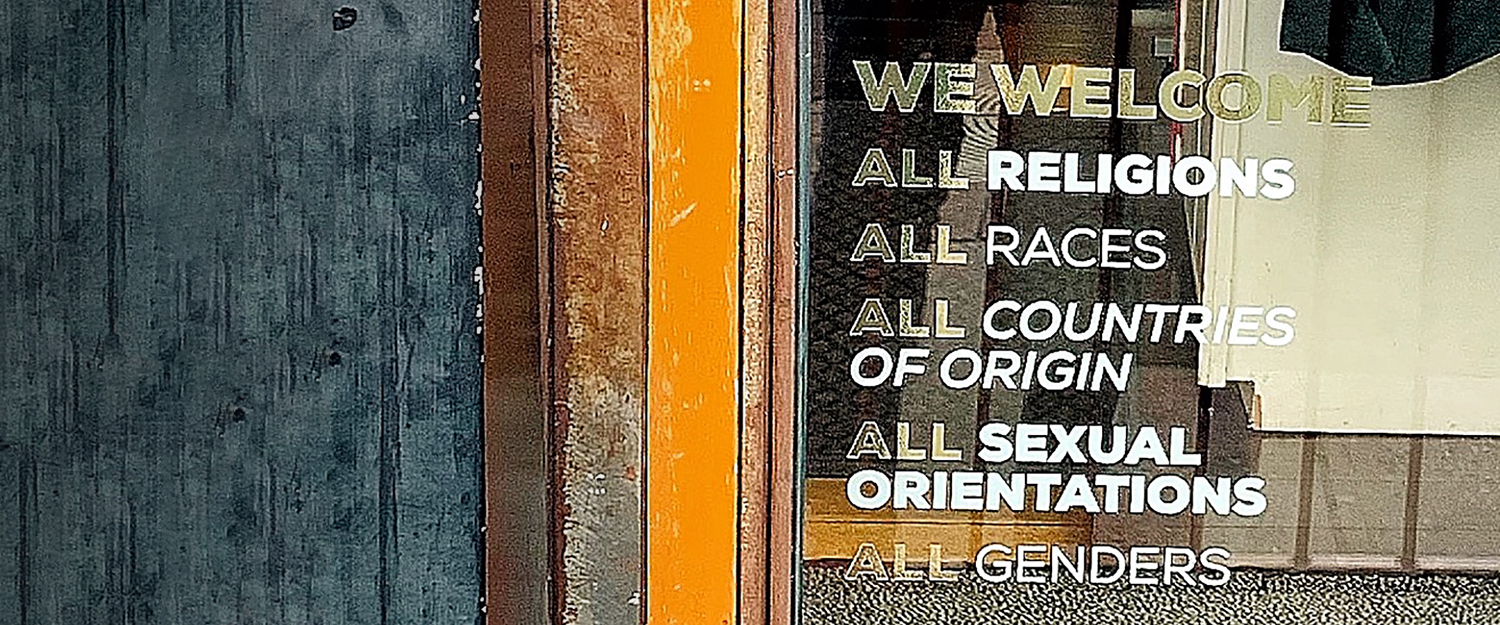LGBTQ people often face discrimination from landlords and business owners. NCLR fights for the right of LGBTQ people to obtain housing and buy goods and services from businesses that are open to the public without fear of discrimination or harassment.

Housing & Public Accommodations
Photo Courtesy Hope Tank, Denver
Advocacy
Legislation & Policy
Equality Act
Federal
URGENT ACTION: Tell Your Senators to Vote for the Equality Act!
The Equality Act (H.R. 5) would prohibit discrimination based on an individual’s sexual orientation or gender identity in employment, housing, credit, education, public accommodations (things like restaurants, hotels, and theaters), and jury service. It would also prohibit discrimination based on sex, sexual orientation, and gender identity in programs receiving federal funding. The bill was passed by the House of Representatives in the last Congress in May 2019 with a bipartisan vote of 236 to 173 but was blocked from consideration in the Senate by then-Majority Leader Mitch McConnell. The bill was reintroduced by Rep. David Cicilline (RI-1) and Sen. Jeff Merkley (OR) in the 117th Session of the United States Congress on February 18, 2021. A vote is expected in the House shortly, with action following soon after in the Senate.
NCLR has played a leading role in drafting the Equality Act and working for its eventual passage. We have partnered with Black and Pink and others to educate Congress and the public on the Act’s potential to reform the U.S. criminal legal system for LGBTQ people and people of color.
Currently, only 22 states have non-discrimination protections that fully protect LGBTQ individuals. According to the Center for American Progress, more than 1 in 3 LGBTQ Americans have reported facing some form of discrimination within the past year, with the number increasing to 3 in 5 for transgender individuals. This discrimination often causes substantial harm to the psychological and economic wellbeing of the LGBTQ community and creates undue difficulties for many LGBTQ people in accessing medically necessary healthcare – most dramatically for the transgender population and people of color.
The most recent polling from the nonpartisan Public Religion Research Institute (PRRI) shows that more than 80 percent of all Americans (including a majority of Democrats, Independents, and Republicans) support comprehensive nondiscrimination protections that include LGBTQ individuals. FiveThirtyEight has also similarly found that President Biden’s executive order mandating that federal agencies implement the Supreme Court’s ruling in Bostock v. Clayton County in nondiscrimination policies was the most popular of his early executive actions, with the support of an overwhelming 83% of Americans.
More than 600 national, state, and local organizations have signed on to urge the swift passage of the Equality Act, in addition to a broad coalition of faith-based groups and 335 major corporations, showing the breadth of support the legislation has maintained since its passage in the House in 2019. NCLR is a member of the Freedom and Opportunity for All coalition (along with 16 other partner organizations) advocating for the urgent passage of the Equality Act.
Cases & Advocacy
Kevin Seaman and The Sisters of Perpetual Indulgence — Agreement with Lyft
Nationwide
Kevin Seaman, an interdisciplinary artist, cultural worker, and drag queen whose drag persona is LOL McFiercen, and The Sisters of Perpetual Indulgence, a leading-edge Order of queer and trans nuns devoted to community service and promoting human rights, have reached a collaborative agreement with Lyft to ensure individuals in the queer and drag communities are not discriminated against by drivers using Lyft’s platform.
Resources
Press Release
NCLR Disappointed by Supreme Court Ruling Allowing Discrimination in Certain Circumstances
Friday, June 30, 2023. Today, in a 6-3 decision, the United States Supreme Court ruled that certain businesses that involve customized expressive messages may turn away same-sex couples or other customers. The ruling came in the case 303 Creative v. Elenis, in which the Court addressed whether a website designer in Colorado could refuse to design wedding websites for same-sex couples.









